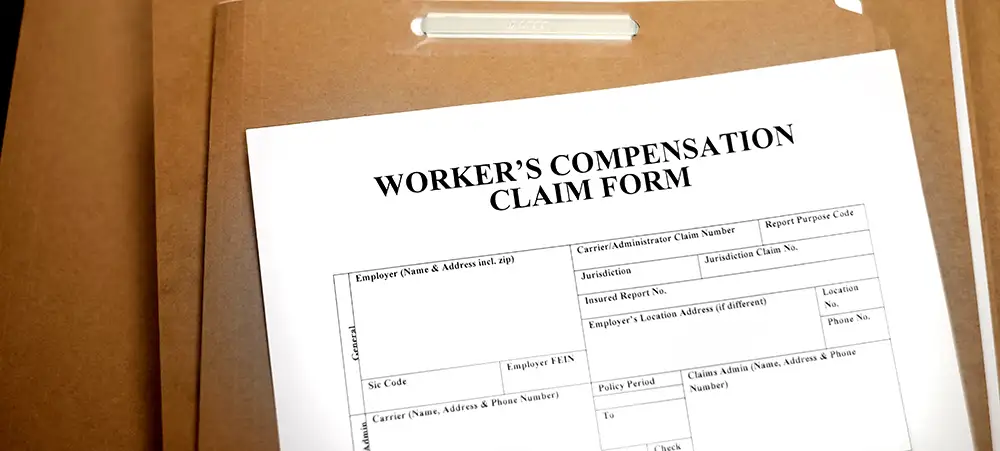What is Maximum Medical Improvement (MMI)?
In simple terms, MMI means your doctor has determined that your condition has healed as much as it medically can—even if you’re not 100% back to where you were before the injury.
This point is critical in Georgia workers’ compensation claims because it often determines what benefits you’ll continue to receive, whether you can return to work, or if you may qualify for permanent disability benefits.
Reaching MMI also plays a major role in personal injury cases, as it sets the stage for understanding the long-term impact of your injury and calculating fair compensation. Whether you can return to your old job or need ongoing support, knowing when you’ve reached MMI helps shape the outcome of your claim.
MMI vs. Full Recovery in Georgia Workers’ Compensation
MMI is not the same as a full recovery. MMI means your condition has stabilized and further significant medical improvement isn’t expected, even if you still have lasting symptoms or limitations. A full recovery, on the other hand, means you’ve returned to your pre-injury health with no ongoing restrictions—something many injured workers unfortunately never reach.
For example, if you suffer a serious back injury at work, your doctor may declare you at MMI once treatment has done all it can to reduce pain and improve mobility. Even if you still experience stiffness or can’t lift heavy objects, your condition may not improve further—making MMI the marker for your workers’ compensation case, not a complete recovery.
Georgia Workers’ Compensation Law and MMI
Understanding how MMI works under Georgia workers’ compensation law is essential to knowing your rights after a workplace injury. MMI is not just a medical milestone—it carries important legal weight that directly affects your benefits.
Where MMI Is Defined Under Georgia Workers’ Compensation Statutes
- Georgia law doesn’t explicitly define MMI in a standalone section, but the concept is inherent in how the law handles the conclusion of treatment and evaluation of impairment.
- Significantly, once MMI is declared, the law guides how permanent partial disability (PPD) benefits are calculated—under O.C.G.A. § 34-9-263, which sets out the schedule of compensation for permanent impairments.
The Role of the Authorized Treating Physician (ATP) in Declaring MMI
- Only your Authorized Treating Physician (ATP)—the doctor approved by your employer’s workers’ compensation insurance—can declare when you’ve reached MMI.
- Their opinion carries significant weight in your claim because it impacts what benefits you may continue to receive and whether you are assigned a Permanent Partial Disability (PPD) rating.
- If you disagree with your ATP’s decision, Georgia law provides options for a second opinion or an independent medical examination.
How MMI Affects Eligibility for Continued Treatment and Benefits
- Once MMI is reached, you may no longer qualify for temporary total disability (TTD) benefits if you’re able to return to some form of work.
- You may still receive medical treatment that helps manage your symptoms, but ongoing curative treatment may be limited.
- If permanent restrictions remain, you may be entitled to permanent partial disability benefits or vocational rehabilitation support.
The Process of Reaching MMI in Georgia
MMI is not achieved overnight—it develops over weeks or months as you receive treatment and undergo medical evaluations. In a typical Georgia workers’ compensation case, the process usually follows these steps:
1. Initial Treatment After Injury
After a workplace accident, you’ll begin medical treatment with your Authorized Treating Physician (ATP). This may include diagnostic testing (X-rays, MRIs, CT scans) to determine the severity of your injury.
The goal at this stage is to stabilize your condition and relieve immediate pain.
2. Ongoing Medical Care and Rehabilitation
As your treatment progresses, you may undergo:
- Physical therapy
- Surgery (if required)
- Pain management programs
- Medications or injections
Your ATP monitors your progress and adjusts your care plan based on how well you respond.
3. Determining When Recovery Levels Off
Over time, your doctor evaluates whether further treatment is making measurable improvements. If your condition stabilizes—even if you still have symptoms—that’s when your doctor begins considering MMI.
4. Functional Capacity Evaluation (FCE)
Your doctor may order a Functional Capacity Evaluation (FCE) to measure your physical abilities, such as lifting, bending, standing, or reaching. The FCE helps determine what kind of work you can safely perform and whether permanent restrictions are needed.
5. Declaring MMI
When your ATP decides additional treatment is unlikely to produce significant improvement, they officially declare you at MMI. At this point, you may be assigned a Permanent Partial Disability (PPD) rating, which directly affects your workers’ compensation benefits.
6. Ongoing Care After MMI
Even after MMI, you may still receive medical care to manage symptoms (such as pain medication, physical therapy, or follow-up visits).
However, this care is considered maintenance, not curative treatment.
What Happens After MMI in Georgia?
Reaching MMI is a turning point in a Georgia workers’ compensation case. Once your doctor determines you have reached MMI, the focus shifts from temporary recovery to long-term planning for your benefits and compensation.
While you may still receive medical care to manage symptoms, the type and amount of benefits you receive often changes. Temporary benefits, such as Temporary Total Disability (TTD) or Temporary Partial Disability (TPD), may end or be reduced depending on whether you are able to return to work in some capacity.
If your injury leaves you with lasting restrictions or permanent damage, your Authorized Treating Physician will assign a Permanent Partial Disability (PPD) rating. This rating is based on established medical guidelines and determines the amount of compensation you will receive for your permanent impairment under Georgia’s workers’ compensation laws. In some cases, if your injury prevents you from working at all, permanent disability benefits may also come into play.
Another major development after reaching MMI is the possibility of settlement negotiations. Since your condition has stabilized, both you and the insurance company have a clearer understanding of your long-term medical needs and work restrictions. This often makes MMI the natural point for discussing a workers’ compensation settlement that may include payment for future medical care, lost wages, and permanent disability compensation.
Key Insight: Why Having a Lawyer Matters After MMI
Once MMI is reached, insurance companies often try to limit what they pay. A skilled Georgia workers’ compensation lawyer can negotiate on your behalf, challenge low PPD ratings, and fight for the full settlement you deserve.
Disputes About Maximum Medical Improvement in Georgia
Disagreeing with the Doctor’s MMI Determination
If you believe your Authorized Treating Physician (ATP) declared MMI too early or underestimated your ongoing limitations, you have options. It’s important to document your symptoms, continued pain, or functional restrictions and notify your attorney and the insurance company that you dispute the MMI finding.
Independent Medical Examinations (IMEs)
In Georgia, an Independent Medical Examination (IME) may be requested to provide an unbiased second opinion. IMEs are conducted by doctors who are not involved in your treatment and can help determine whether the MMI declaration is accurate. Their findings can influence PPD ratings, benefits, and any ongoing treatment needs.
Resolution Through the State Board of Workers’ Compensation
If disputes persist, the Georgia State Board of Workers’ Compensation can step in to resolve conflicts. The Board may schedule hearings, review medical evidence, and ultimately decide whether the MMI declaration, treatment plan, or PPD rating should be adjusted. This ensures injured workers have a formal process to challenge decisions that impact their benefits.
Rights of Injured Workers at MMI
Reaching Maximum Medical Improvement (MMI) does not mean you lose your rights as an injured worker. In fact, Georgia law provides protections to ensure you understand your condition, your benefits, and your options moving forward. Here’s what you need to know:
- Access to Records and MMI Rating: You have the right to a copy of your medical records and MMI rating.
- Challenge MMI Determination: You can dispute your MMI or PPD rating, including through an Independent Medical Examination (IME).
- Vocational Rehabilitation: If you can’t return to your previous job, you may be eligible for retraining or vocational assistance.
Common Injuries and MMI Outcomes in Georgia
Certain workplace injuries are more likely to result in Maximum Medical Improvement (MMI) due to the severity or long-term effects of the injury. Understanding these common injuries can help workers recognize when they may be approaching MMI and what benefits to expect.
Back and Spine Injuries
Strains, herniated discs, or fractures are common in many physically demanding jobs. These injuries often stabilize after weeks or months of treatment, at which point MMI is determined.
Joint and Shoulder Injuries:
Shoulder rotator cuff tears, knee ligament injuries, or severe arthritis from repetitive use can reach MMI even if some limitations persist.
Repetitive Strain Injuries
Carpal tunnel syndrome, tendonitis, and other repetitive motion injuries can result in MMI once the condition plateaus.
Georgia Industry Examples:
- Construction: Falls, heavy lifting injuries, and back trauma are common, often leading to MMI after surgery or physical therapy.
- Airport Workers: Baggage handlers and ramp agents often experience back, shoulder, or knee injuries from lifting and repetitive tasks.
- Logistics (Atlanta area): Warehouse and delivery workers frequently experience back strains, shoulder injuries, or knee damage from lifting, moving, and operating equipment.
- Healthcare: Nurses, caregivers, and hospital staff may face back injuries, shoulder strains, and repetitive stress injuries from patient lifting, long shifts, and repetitive tasks.
- Manufacturing: Factory workers may develop repetitive strain injuries, joint damage, or back problems from operating machinery and performing repetitive assembly work.
MMI FAQ – Georgia Workers’ Compensation
How long does it take to reach MMI in Georgia?
The timeline varies depending on the type and severity of your injury. Some workers may reach MMI in a few weeks, while more serious injuries can take several months or longer. Your Authorized Treating Physician monitors your progress and determines when your condition has stabilized.
Can I continue treatment after Maximum Medical Improvement?
Yes. While MMI marks the point where your condition is unlikely to improve significantly, you can still receive ongoing or maintenance care to manage pain or maintain function. However, additional curative treatment may be limited.
What if my injury gets worse after I’m declared at MMI?
If your condition worsens after MMI, you should notify your doctor and workers’ compensation attorney immediately. In some cases, a reassessment may be possible, and additional benefits or treatment could be available.
Can I switch doctors if I disagree with the MMI finding?
Georgia law allows injured workers to request an Independent Medical Examination (IME) if they disagree with the MMI declaration. Your lawyer can also guide you through the process to challenge the finding and ensure your condition is accurately assessed.
Does MMI mean I have to go back to work?
Not necessarily. MMI simply means your condition has stabilized. Your ability to return to work depends on your functional capacity and any permanent restrictions. If you cannot perform your previous job, you may be eligible for permanent partial disability benefits or vocational rehabilitation.
How a Georgia Workers’ Compensation Lawyer Can Help
A skilled Georgia workers’ compensation attorney can guide you through the MMI process and protect your rights:
- Fair and Accurate MMI: Ensures your MMI determination is correct and fully reflects your condition.
- Protecting Your Rights: Stops insurers from pushing for early MMI declarations.
- Maximizing Benefits: Helps secure the highest possible settlement and disability benefits.
- Representation in Disputes: Advocates for you before the Georgia State Board of Workers’ Compensation.
Connect with a Georgia Workers’ Compensation Lawyer
If you have questions about Maximum Medical Improvement (MMI) or need help navigating your workers’ compensation claim, the Law Offices of Humberto Izquierdo, Jr., PC is here for you. Our compassionate attorneys and legal team are available 24/7, offer bilingual support, and will fight to protect your rights and secure the benefits you deserve.
Contact us today at (770) 888-8901 to speak with an experienced Georgia workers’ compensation lawyer who truly understands your needs.








